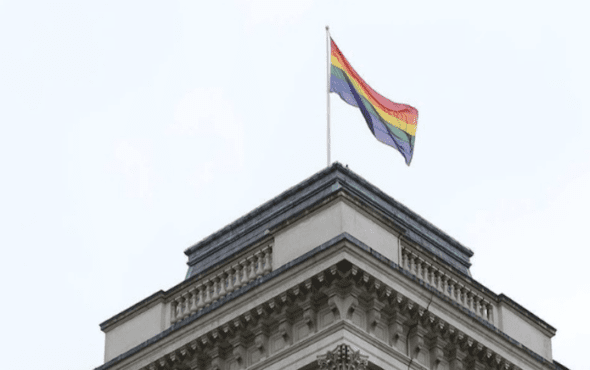
In a step back for LGBTQ+ rights, Thailand has officially ruled against marriage equality within its constitution.
According to a report from the Washington Blade, the Constitutional Court sided with Section 1448 of the country’s Civil and Commercial Code.
Under the law, it says that marriage is between a man and a woman and does not grant marital rights to same-sex partnerships.
The controversial ruling comes after the advocacy group, Foundation of Sexual Orientation and Gender Identity Rights, filed a lawsuit challenging the code.
Alongside their ruling, the court encouraged government officials to “draft laws that guarantee the rights for gender diverse people”.
Shortly after the verdict was made public, LGBTQ+ activists expressed their disappointment with the court.
According to a report from Coconut Bangkok, author and historian Chanun said the verdict was like “discrimination within discrimination”.
“It makes the institution of marriage look feudal and something bound only to male and female,” Chanun said.
The decision has also prompted LGBTQ+ advocacy groups like Free Gender Thailand to plan a protest to fight the decision on 28 November.
Months before the constitutional court’s verdict, Thailand approved a draft bill that would legalise same-sex civil partnerships.
The Civil Partnership Bill avoids the term “marriage” but allows same-sex couples the right to jointly own property, adopt children and pass on inheritances. It would be a first in any Southeast Asian country if passed into law.
Ratchada Dhnadirek, a deputy government spokesperson, said the bill is a “milestone for Thai society in promoting equality among people of all genders” and “strengthens the families of people with sexual diversity”.
Under the bill, civil partners are defined as couples with the same sex. To register, they must be at least 17-years-old and one of them must be a Thai citizen – meaning foreign same-sex couples are exempt and won’t qualify.
Those under the age of 17 will need to get permission from their parents or legal guardian.
Even though the bill was praised as a huge leap for the queer community, social activists called the legislation a copout for labelling same-sex unions as “civil partnerships” rather than “marriage”.
“The civil partnerships bill isn’t a milestone for gender equality in Thailand, instead it’s an obstacle to reach marriage for all,” said Tattep Ruangprapaikitseree, LGBTQ activist and Secretary-General of progressive youth organization Free Youth.
“Why not just call everyone, both traditional and non-traditional couples, as married partners, why does a special term have to be assigned to LGBT as ‘civil partner’. This is another form of discrimination in disguise.
“We don’t want anything special we just want to be treated like others.”



